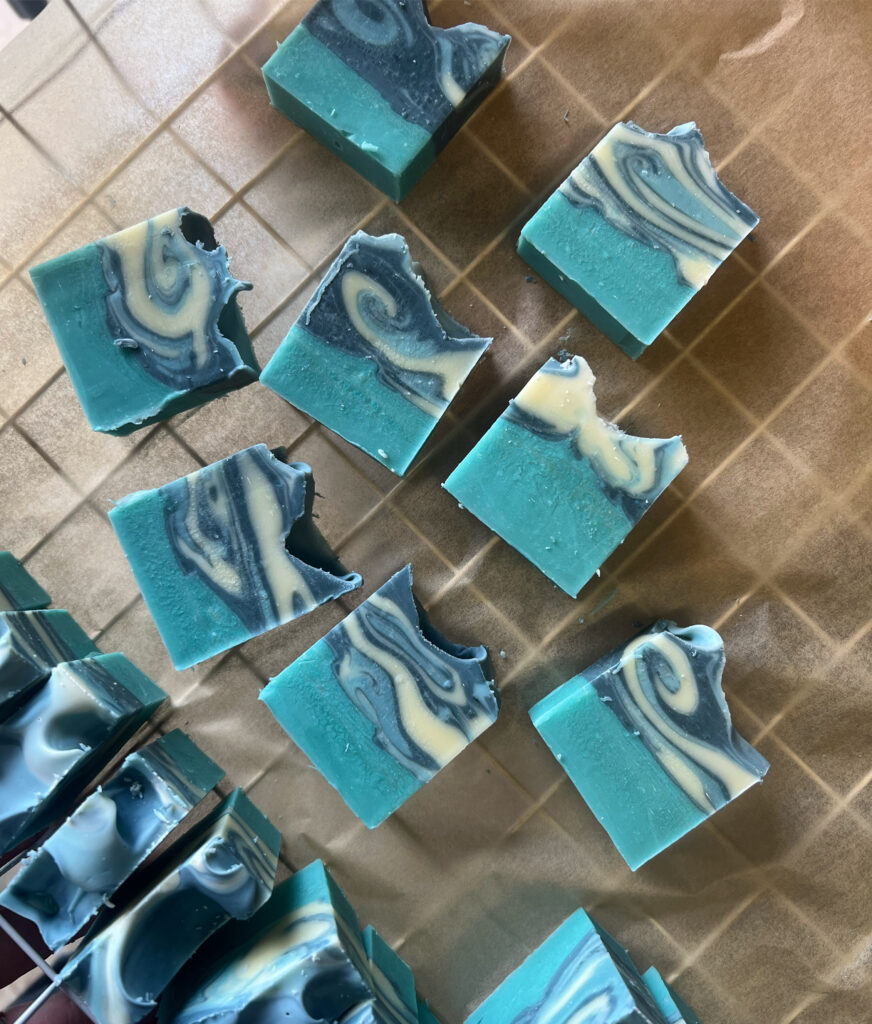In an age of automation and mass production, where machines can churn out thousands of bars of soap a day, it might seem puzzling that some people still choose to make soap the old-fashioned way — by hand. Natural soap makers invest time, effort, and artistry into every batch, knowing full well that machines could do it faster and cheaper.
But there’s a reason for that choice. In fact, there are many. Here’s why they do it:
1. Ingredients That Matter
Mass-produced soaps often rely on cheap fillers, synthetic detergents, and harsh chemicals to lower costs and extend shelf life. These ingredients can strip your skin of its natural oils, leaving it dry, irritated, or even inflamed.
Handmade soap, on the other hand, is typically made with natural, skin-loving ingredients like:
- Olive oil, coconut oil, shea butter, and cocoa butter
- Natural colorants like clays, herbs, and activated charcoal
A seasoned soap maker could whip up a batch in their sleep — seriously. They know their oils like old friends and can spot a good recipe from a mile away. Ask them about soap, and you might want to pull up a chair, as once we start talking, our passion comes out — it’s honest, unfiltered, and pours out with enthusiasm.
2. Glycerin Stays In
Glycerin is a natural by-product of the soap-making process and acts as a powerful humectant (it draws moisture to the skin). Commercial soap manufacturers often extract the glycerin to sell separately in lotions or creams.
Natural soap makers leave the glycerin right where it belongs — in your soap, keeping your skin soft and hydrated after every wash.
3. No One-Size-Fits-All Approach
Machine-made soap is mass-produced with little variation. Handmade soap, on the other hand, can be customized for different skin types and needs — from acne-prone skin to eczema, from exfoliating scrubs to unscented bars for sensitive users.
This level of personalization just isn’t possible on a factory line.
4. Eco-Friendly and Ethical
Natural soap makers are often deeply committed to sustainability and ethics. That means:
- Using biodegradable ingredients
- Minimizing plastic packaging
- Not testing on animals
Their business practices often reflect a desire to leave the planet better than they found it — not just make a profit.
5. Craftsmanship and Passion
There’s a certain magic in knowing that the soap you’re using was made by real hands, not machines. From choosing ingredients to pouring the mold and curing the bars, handmade soap is infused with care and intention at every stage.
For many natural soap makers, it’s not just about clean skin — it’s about connecting with people, sharing a piece of their art, and creating something that genuinely helps others.
6. Better for Your Skin, Better for You
Handmade soaps often:
- Help maintain your skin’s natural pH
- Reduce exposure to synthetic chemicals
- Improve skin conditions like dryness, irritation, or acne
- Smell incredible – Often soap makers have a favourite scent combination that they personally have tested and love.
Many users find that once they switch to handmade soap, their skin feels healthier, more balanced, and less reactive.
The Bottom Line
Yes, machines could make soap faster. Yes, it could be cheaper. But it wouldn’t be better.
Natural soap makers choose the harder path because they believe in something bigger — quality, integrity, sustainability, and health. Every bar they make tells a story: of craftsmanship, of conscious living, and of care.
So the next time you hold a handmade bar of soap, know that it’s more than a cleanser. It’s a quiet rebellion against the disposable, the impersonal, and the industrial — and a return to something real.
